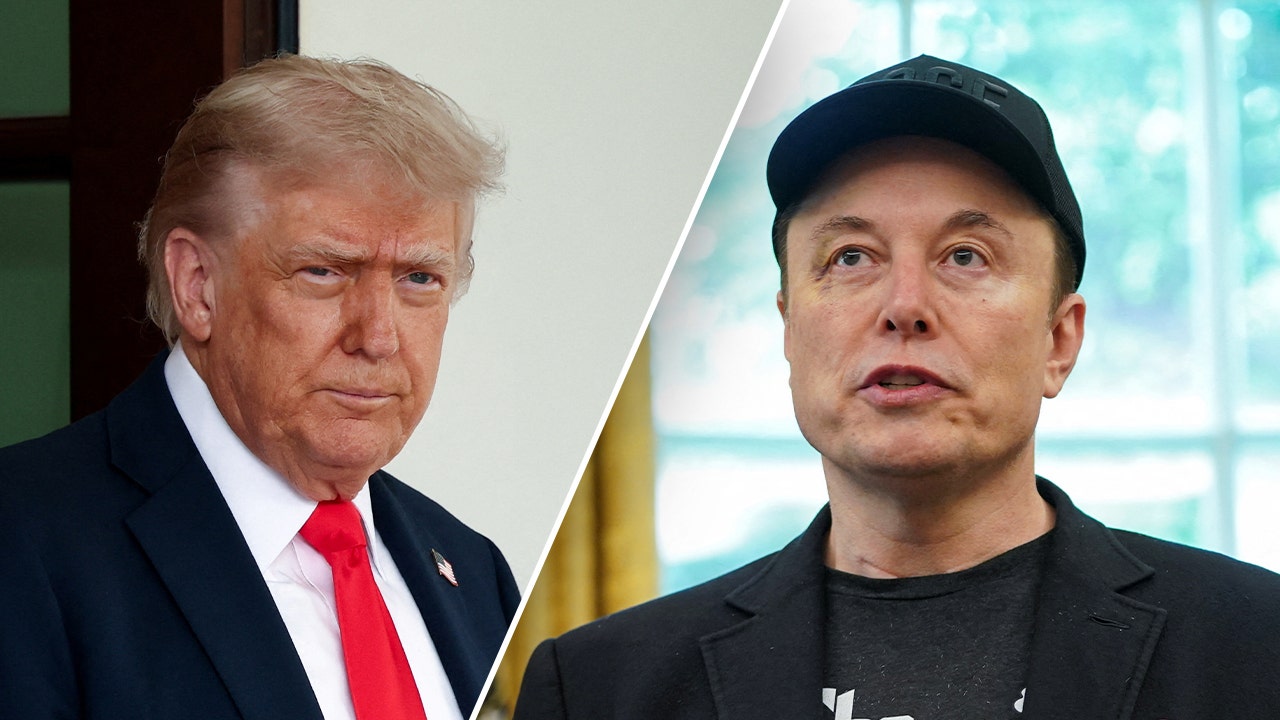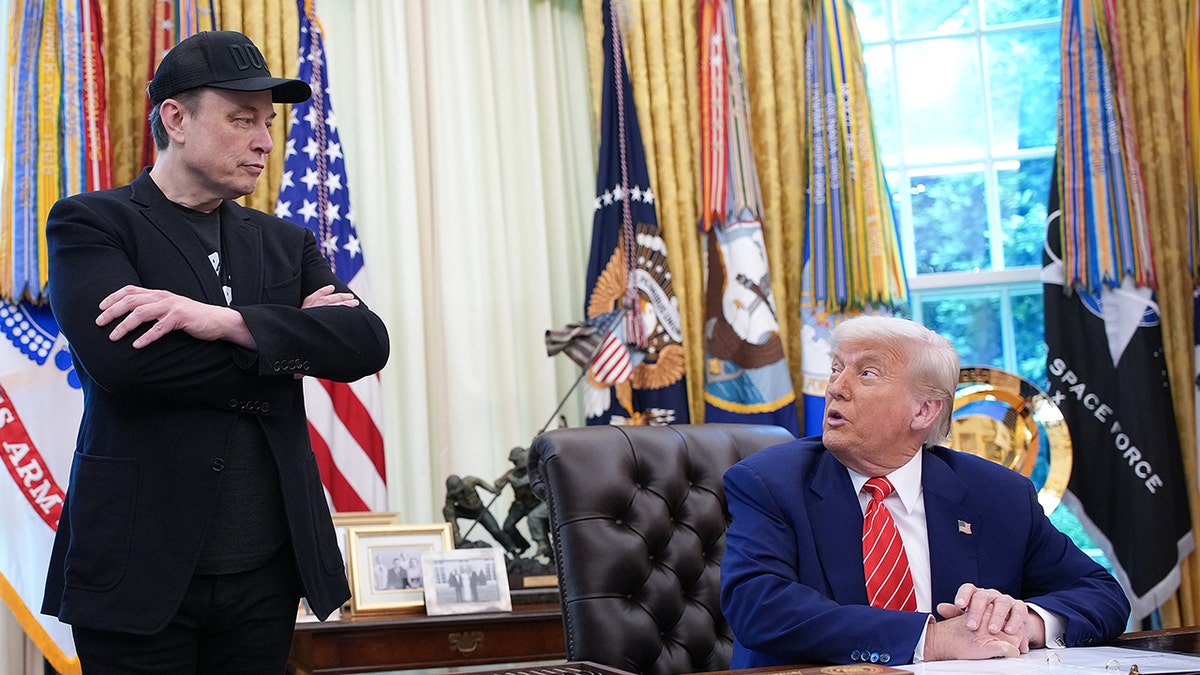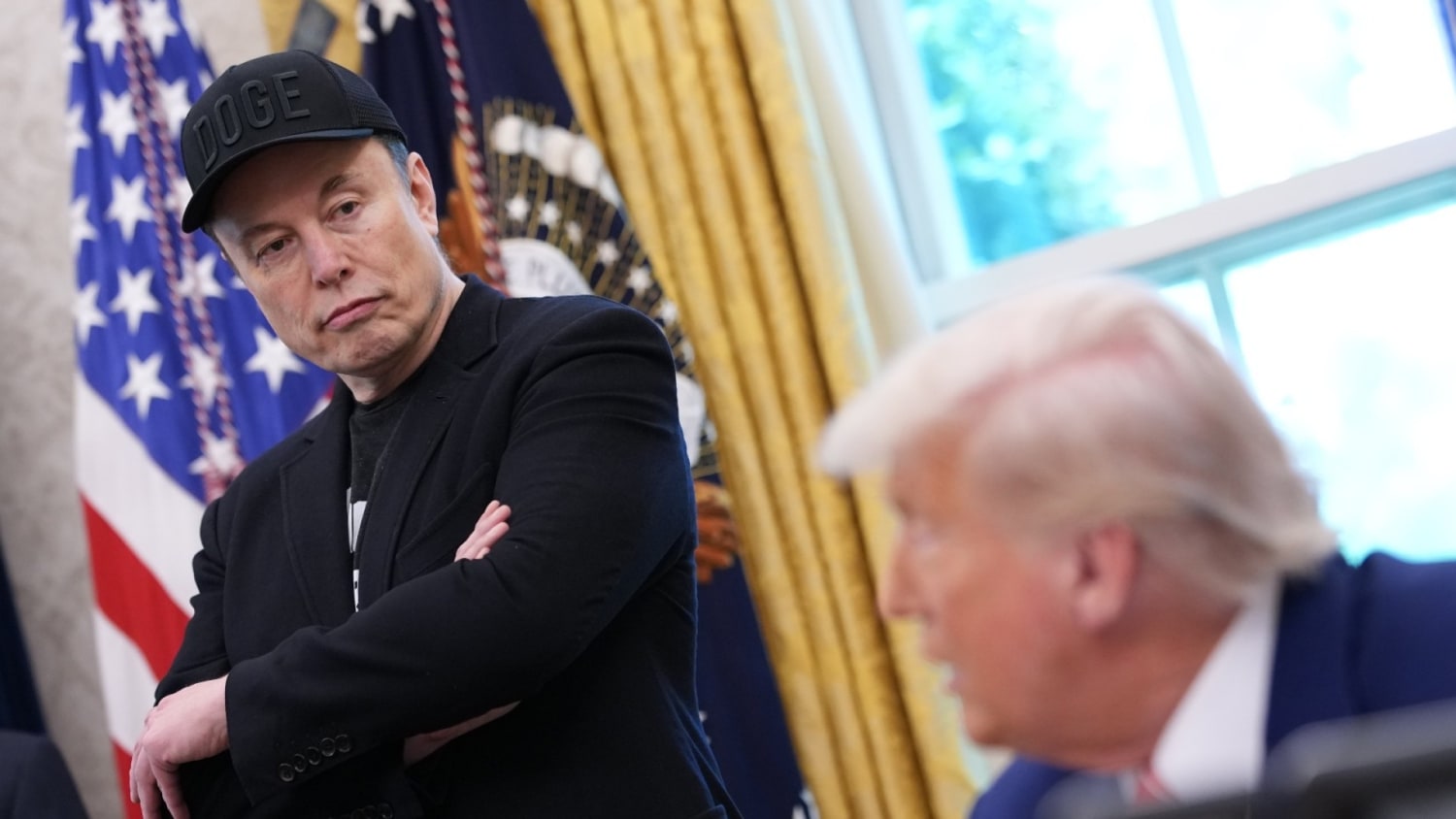
In a recent public exchange, President Donald Trump and billionaire tech mogul Elon Musk found themselves at odds over the “big, beautiful bill,” the sweeping piece of legislation that has become a focal point in their increasingly strained relationship.
Trump, in an Oval Office statement on Thursday, suggested that Musk's vocal opposition to the bill stems from its elimination of electric vehicle (EV) incentives, an issue that has sparked significant tension between the two figures.
Trump's comments came after Musk's repeated criticisms of the bill, particularly its proposed cuts to subsidies and incentives for electric vehicles, which are crucial to Tesla’s business model.
Musk, who has long been a proponent of renewable energy and electric vehicles, had previously benefited from policies such as the 2022 Inflation Reduction Act, which expanded tax credits for consumers purchasing EVs.
The $7,500 tax credit was instrumental in making electric vehicles more accessible to Americans, and Tesla, as the leader in the EV space, was a major beneficiary of this provision.
However, the “big, beautiful bill” passed by the House last month aims to eliminate these incentives, sparking Musk's vocal opposition.
In his remarks, Trump stated that Musk was well aware of the bill's contents and initially had no objections to it. "Elon knew the inner workings of this bill better than almost anybody sitting here," Trump said.
"He had no problem with it." However, Trump pointed out that Musk only developed a problem with the bill once he discovered it would cut the EV mandate, which he claimed would cost Tesla billions of dollars in lost tax credits and subsidies.

This claim highlights the central issue in Musk’s opposition—the potential financial impact on his company if the bill passes without changes.
Musk’s Tesla, a pioneering company in the EV market, has reaped the rewards of federal support in recent years. The tax incentives that were introduced under the Inflation Reduction Act in 2022 provided a significant financial boost to both Tesla and its customers.
These incentives made EVs more affordable, especially for middle-class Americans, and helped Tesla solidify its position as the dominant player in the market.
However, with the proposed cuts in Trump’s new legislation, Musk faces a future where government support for electric vehicles may be significantly reduced, thereby putting a strain on Tesla's long-term financial prospects.
While Trump pointed to Musk’s knowledge of the bill as evidence of his prior acceptance of its provisions, Musk’s objections centered around the cuts to EV and solar incentives, which he considers to be detrimental to the renewable energy industry.
Musk, who has positioned himself as a forward-thinking entrepreneur advocating for a sustainable future, has made his fortune through Tesla’s success in producing electric vehicles.
The company’s innovation in electric vehicles, battery technology, and solar energy has cemented Musk’s reputation as one of the world’s leading figures in clean energy.
Despite the cuts to EV incentives, the “big, beautiful bill” also seeks to eliminate subsidies for the oil and gas industry, something Musk has often criticized for being inefficient and harmful to the environment.
He pointed out in his response to Trump that it was "very unfair" that the bill kept the cuts to EV and solar energy incentives while leaving oil and gas subsidies untouched.
Musk's frustration stems from what he sees as a double standard in the legislation, where renewable energy, which he champions, bears the brunt of the cuts while fossil fuels remain protected.
Musk’s response to Trump’s comments was swift and succinct. In a social media post, Musk wrote, "Whatever." His response, though brief, encapsulated his disdain for the bill and his ongoing frustration with Trump’s stance on renewable energy.
Musk added, "Keep the EV/solar incentive cuts in the bill, even though no oil & gas subsidies are touched (very unfair!!), but ditch the MOUNTAIN of DISGUSTING PORK in the bill."
This comment reflects Musk's broader concerns not just about the cuts to green energy incentives, but also about the bill’s overall structure, which he believes contains excessive wasteful spending, or "pork," that could lead to further budget deficits.
Musk's opposition to the bill is not solely about the loss of financial benefits for his own company. In fact, much of his criticism stems from his belief that the bill could have a long-term negative impact on the environment and renewable energy progress.
By eliminating the incentives for electric vehicles and solar energy, Musk argues, the bill would undermine the United States' efforts to transition to a more sustainable energy future.
Musk, who has long advocated for renewable energy sources like solar power, has made it clear that he views the bill as a setback for both the green energy movement and Tesla’s mission to combat climate change.

This disagreement over the “big, beautiful bill” has further complicated Musk’s relationship with Trump. The two men had a close working relationship during the early years of the Trump administration.
Musk was a member of Trump’s advisory councils, where he provided input on policies related to science, technology, and infrastructure. However, in recent months, Musk has distanced himself from Trump, particularly after the former president’s policies began to diverge from Musk’s vision for the future of clean energy.
This shift was apparent in Musk’s criticism of Trump’s environmental policies, especially his stance on the electric vehicle industry.
Musk has frequently used his social media platform, X, to express his political views, and his comments on the bill are just the latest example of his outspoken nature.
Musk, who is known for his sometimes controversial and unfiltered tweets, has often used his platform to push back against political figures and policies that he sees as counterproductive to the advancement of technology and environmental sustainability.
His criticism of the “big, beautiful bill” is part of a broader effort to advocate for policies that support clean energy, innovation, and economic growth.
One of Musk’s most significant criticisms of the bill is its potential to add to the federal deficit. In his social media posts, Musk warned that the bill could lead to increased spending and ballooning deficits, which he believes would harm the economy in the long run.
Musk has long been an advocate for fiscal responsibility and has voiced concerns about the growing national debt, which he sees as a threat to future generations.

His critique of the bill highlights his desire to ensure that government spending is directed toward sustainable initiatives that will provide long-term economic and environmental benefits.
Musk also took the opportunity to remind Trump of his contributions to the 2024 election. "Without me, Trump would have lost the election, Dems would control the House and the Republicans would be 51-49 in the Senate," Musk said in a post on Thursday.
His statement reflects the belief that his endorsement and public support played a crucial role in Trump's electoral success. Musk’s comments here also suggest that he feels a sense of betrayal from Trump, who he claims has shown "ingratitude" for his support.
The suggestion that Trump owes his victory to Musk’s influence underscores the tension between the two figures, who were once allies but are now on opposite sides of a growing political divide.
This public feud between Musk and Trump marks a significant moment in American politics, as two powerful figures in the tech and business world clash over policy issues that have far-reaching implications.
The debate over the “big, beautiful bill” is not just about the future of electric vehicles and renewable energy—it is also about the broader direction of the country’s economic and environmental policies.
For Musk, the bill represents a major setback for the clean energy movement and a step backward in the fight against climate change. For Trump, the bill is part of his broader agenda to reduce government spending and reshape the economy in line with his vision of American greatness.
As this feud between Musk and Trump continues to unfold, it remains to be seen how it will impact the broader political landscape.

Musk’s influence as a tech entrepreneur and political figure has only grown in recent years, and his public opposition to Trump’s policies could have significant consequences for both men.
Whether Musk’s stance will lead to further alienation from the Republican Party or whether Trump will adjust his policies in response to Musk’s criticism is yet to be determined.
However, one thing is clear: the political clash between these two powerful figures is far from over, and it will undoubtedly shape the future of American politics for years to come.
In conclusion, the growing public feud between Elon Musk and President Trump over the “big, beautiful bill” highlights the deepening divide between the two figures on issues of renewable energy, government spending, and economic policy.
Musk’s opposition to the bill’s cuts to EV and solar energy incentives reflects his broader concerns about the future of clean energy in the United States. As Musk continues to use his platform to advocate for his political vision, it remains to be seen how this feud will impact his relationship with Trump and the direction of American politics.




